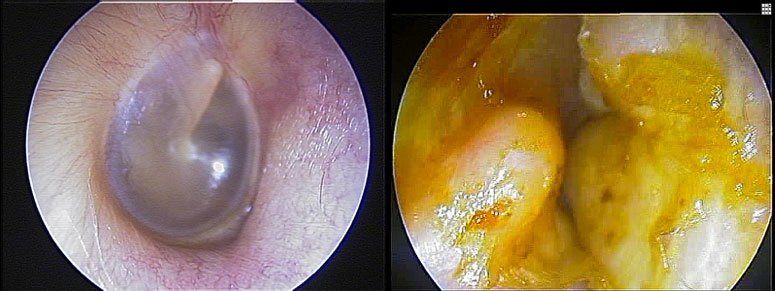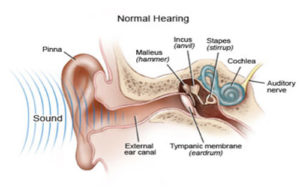
- Risks of Surgery for Surfer’s Ear - October 26, 2017
- The Dangers of Untreated Exostosis / Surfer’s Ear - October 26, 2017
- Surfer’s Ear Treatment: Chisel vs Drill - October 26, 2017
Surfer’s ears (also known as exostoses) take years to form, and occur with chronic exposure to cold water or air. It is common in swimmers and surfers who dip their ears in cold water, but it can also occur in patients who have a long history of ear exposure in other cold, windy, and wet conditions such as sailing, skiing, or windsurfing.

What are the dangers of surfer’s ears?
The symptoms of surfer’s ears are related to blockage of the ear canal. These include:
- Wax build up and impaction
- Entrapment of sand and other debris
- Frequent ear infections (otitis externa)
- Conductive hearing loss
- Inability to use headphones or hearing aids

What are the dangers of surfer’s ears?
There are no immediate dangers for leaving surfer’s ears untreated. It is important to monitor the ear health and ensure that the growths are not progressing. However, symptoms will not resolve until surgery is performed.
Surgery for surfer’s ear can be done after careful evaluation of the patient’s individual risks and symptoms. It is important to recognize that as the exostoses become larger, which happens if the cold exposure continues, surgery becomes more difficult, with higher associated risks.
When should surgery be considered?
Observation is an option if:
- the exostoses are small
- there are minimal or no associated symptoms AND
- there is no further exposure to cold environments
Surgery may be recommended if:
- exostoses are not small
- there are associated symptoms such as wax accumulation, infections, irritation, or
- hearing loss
It is critical to consider surgery as the condition typically worsens with time and continued exposure to cold environments. Advanced cases of exostoses are much more likely to require surgery, and it is important to seek a trained otologist (an ENT who specializes in ear surgery) who has exostosis experience to perform the surgery safely.
To learn more about exostoses or surfer’s ear, please visit: www.eardoctorla.com



